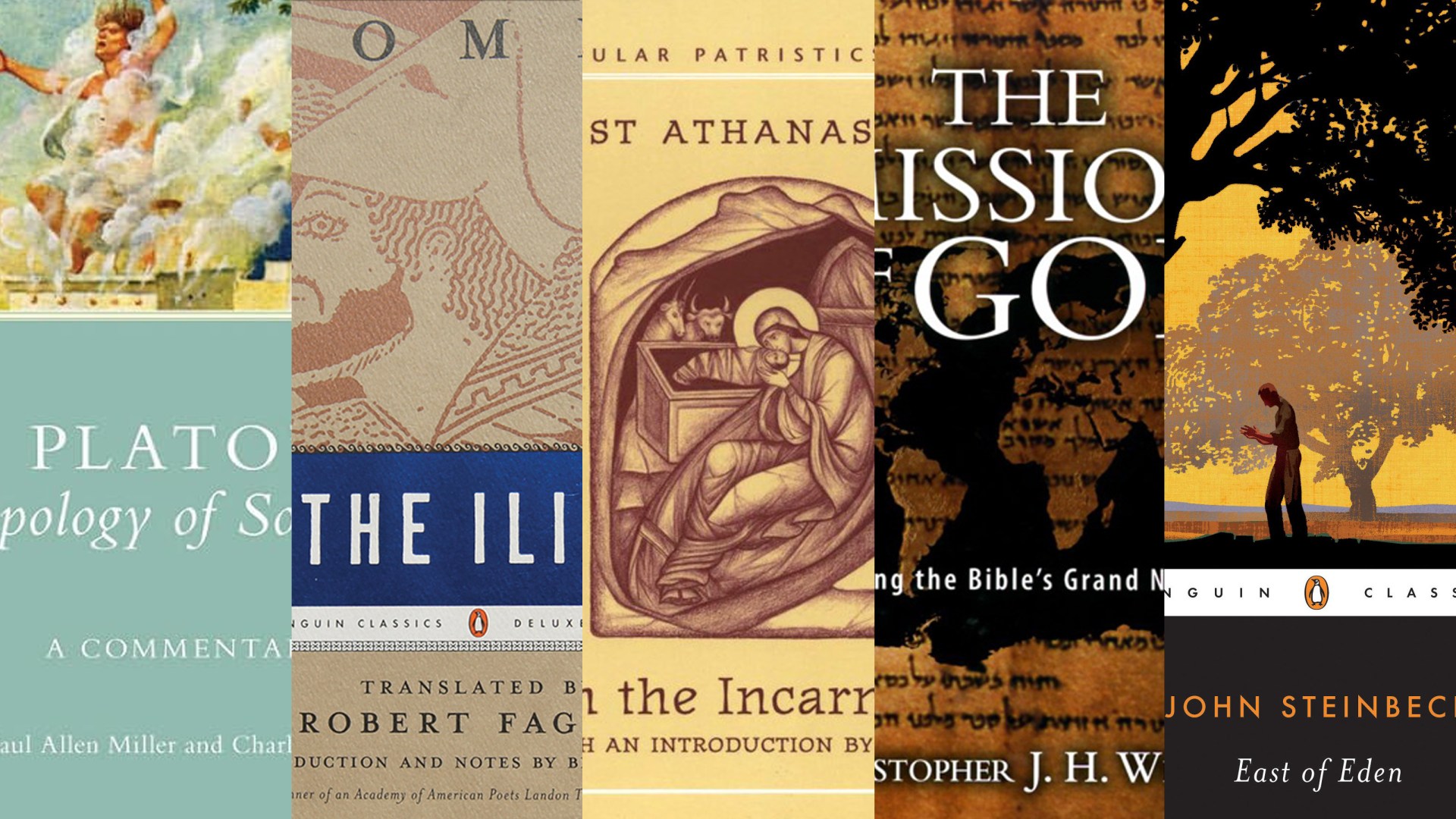As a teacher at a Christian classical school in the Chicago suburbs, and now as head of the Pegasus Education tutoring service, Matthew Farrelly has designed curricula aimed at cultivating both the minds and souls of teenage students. Here he chooses five books more Christian high schoolers should be encouraged to read.
The Apology of Socrates, by Plato
Socrates, the great Athenian philosopher, invited followers to ask ultimate questions about wisdom, virtue, and the purpose of life. Plato, his student, records some of Socrates’ final words as he stands trial unjustly for corrupting the youth of Athens, including his call “not to care for your body or your wealth” so much as “the best possible state of your soul.” That Socrates bears strange resemblances to Jesus is a beautiful providence.
The Iliad, by Homer
Homer’s setting is predominantly upon the battlefield of Troy (Ilium). Yet, the poet’s deepest passion lies in revealing the enchanting tension between human love and hate, friendship and betrayal, passion and glory, free will and divine determination. As Christians, we see just how radically different our God is from pagan conceptions of Homer’s day (of which he is a subtle critic, much like the “impious” Socrates).
On the Incarnation, by Athanasius
This little book (just 72 pages) is a beautiful contemplation of the event and implications of Jesus’ incarnation. Eminently readable, epic in scope, and the polar opposite of cold, academic theology, it is a profound reflection on the very heart of Christian faith. Athanasius, the fourth-century Alexandrian bishop, beautifully unveils the nature and purpose of Christ’s life and work, using rich theological metaphors that remind us of God’s deep love for the fallen human race.
The Mission of God, by Christopher J. H. Wright
Due to a variety of cultural and educational trends, we’ve seen a sharp drop in the ability of students to read deeply and synthetically. Biblical literacy is no different. Working knowledge of biblical personalities and chronologies is often shallow, which is the tip of an even larger iceberg: ignorance of the Bible’s overarching story of salvation. Wright draws from his biblical and theological expertise, inviting us into a deeper understanding of the biblical arc of God’s saving mission.
East of Eden, by John Steinbeck
Published in 1952, East of Eden is what Steinbeck considered “the only book [he had] ever written,” believing “there is only one book to a man.” It retells of the story of Genesis 1–4 through the diverse and often surreal characters of the Trask and Hamilton families, who inhabit Steinbeck’s own Salinas Valley, in California. The novel probes the depths of human nature in a way that is both haunting and hopeful in its ability to deeply transform the reader.










